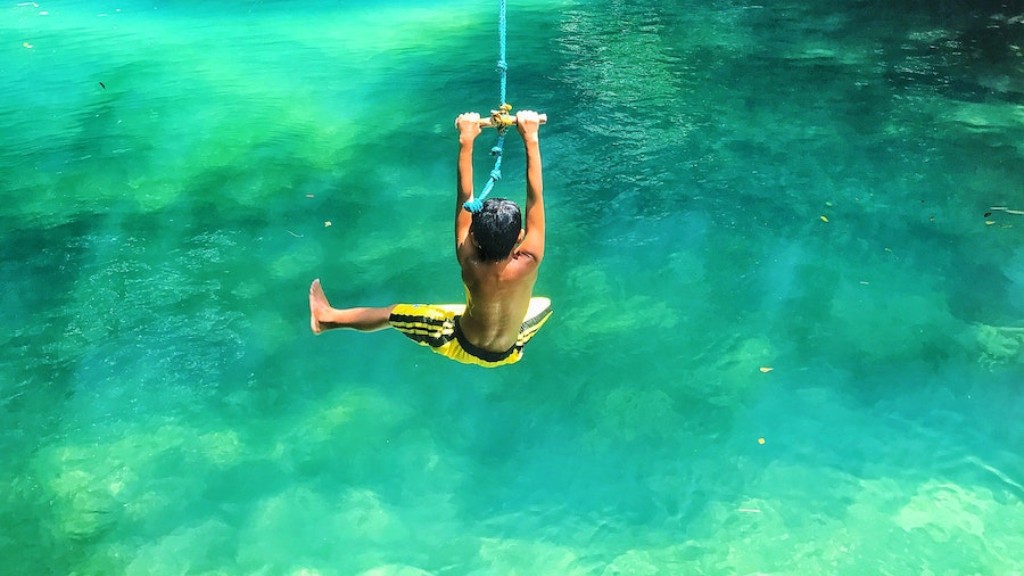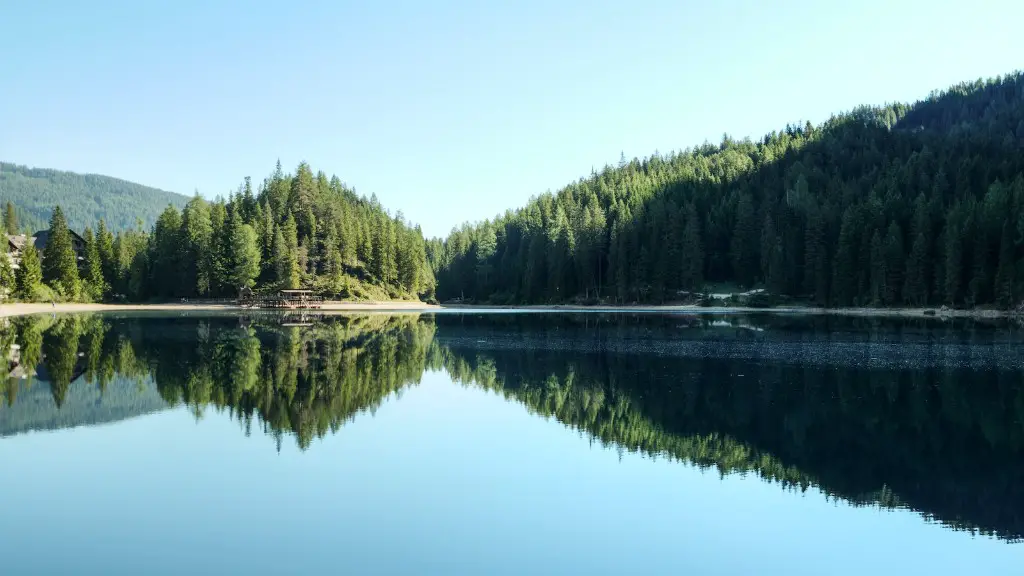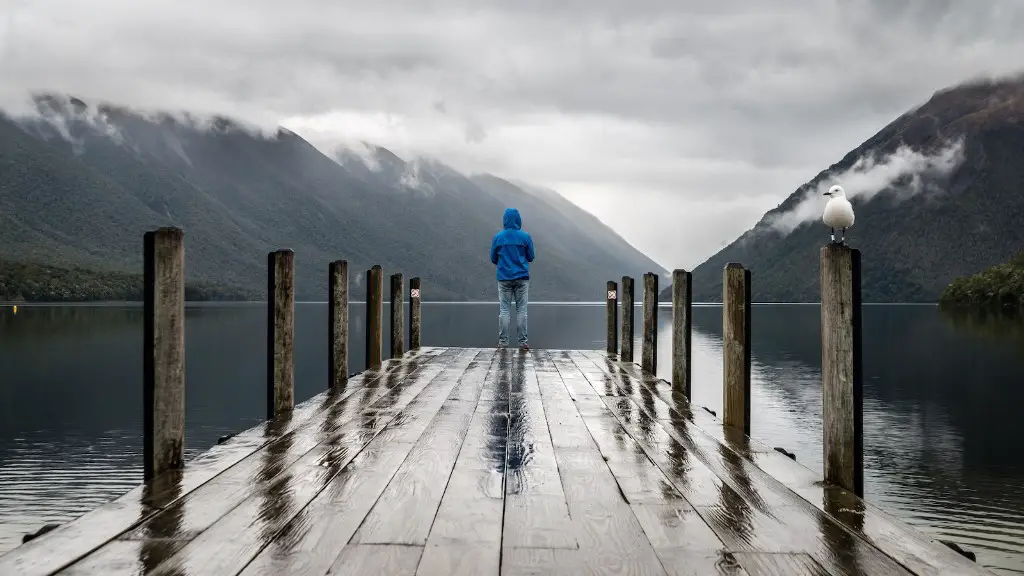History
The Ojibwe people have long lived in the area near Lake Superior, and they have utilized the lake since pre-colonial times. These local residents relied on the lake for food and transportation, with the first canoes used in the area dating back to the 1600s. In more recent years, the lake has become an important source of industry and commerce in the states of Michigan, Minnesota, and Wisconsin.
Recreational Uses
The lake is popular with tourists, who enjoy a variety of activities on the lake and its banks. Fishing, kayaking, and boating are popular activities, as is swimming in the clean and clear waters. In the wintertime, snowmobiling and ice fishing are popular activities. The area is also home to numerous hiking and biking trails, as well as in protected areas like Isle Royale National Park.
Safety
The lake is known for its dangerous storms and large, powerful waves that can be hazardous to navigators. As a result, many official warnings about water safety are issued by the U.S. Coast Guard, as well as other local regulatory agencies. It is important to be aware of the potential dangers of the lake, and to follow all safety guidelines to ensure the safety of yourself and any companions you have on the lake.
Uses for Industries
The surrounding area near Lake Superior is home to several industrial ports and shipping lanes, which use the lake to transport goods to and from other points along the shores and farther distances. Many of the large ports on the lake also serve as repair facilities, maintenance and fueling sites, and warehouses for goods.
Sources of Food
The lake is home to an abundance of waterfowl and other wildlife, as well as numerous fish species. Local fisherman are drawn to the lake for its wealth of walleye, lake whitefish, trout, and even sturgeon. The natural abundance of wildlife near the lake provides an important source of food and income for local people.
Protection of Natural Resources
The beauty, resources, and natural habitats of Lake Superior are under constant threat from pollution and overuse. In order to protect these resources for future generations, the government, as well as a number of private and public organizations, have taken steps to keep the lake clean, safe, and free from over-exploitation. These efforts include the enforcement of regulations of water pollution, as well as the implementation of protective measures such as the Clean Water Act and the Great Lakes Legacy Act.
Cultural Significance
For many of the local communities, Lake Superior is an important symbol of their history and culture. Many of the Ojibwe live in the area, and they consider the lake to be a sacred part of their culture, history, and religion. The lake serves as an important part of many ceremonies and rituals, as well as providing a source of spiritual inspiration for the people living around it.
Environmental Impact
The environmental effects of Lake Superior are far-reaching and long-lasting. Pollution from factories, landfills, and other sources is a major concern, as is the increasing amount of runoff from urban areas that has a negative impact on the lake’s health. In addition, the lake is home to numerous endangered species and vulnerable ecosystems, making it necessary for regulations and restrictions to be put in place in order to protect the lake from commercial exploitation.
Tourism
Each year, thousands of visitors come to the shores of Lake Superior to enjoy the natural beauty of the area. There are numerous campgrounds and hotels in the area, as well as a variety of restaurants and other attractions. The growing popularity of the lake has meant a boost to the economy of the region, with tourism to the area bringing in millions of dollars each year.
Economic Benefit
The economic benefits of Lake Superior are often difficult to quantify, but because of the health and wealth of the local communities, there is no doubt that the lake plays an important role. Tourism to the area increases business profits, while the abundance of fish and wildlife provide a valuable source of food, recreation, and natural resources. In addition, the transportation opportunities provided by the lake are an integral part of the economy of the region.
Protected Areas
The national, provincial, and tribal parks near Lake Superior protect the lake’s beauty and the health of its ecosystems. Isle Royale National Park, in particular, is a largely pristine area, where visitors can enjoy the lake’s natural beauty. The Great Lakes National Parks are also incredibly important, and they provide invaluable protection to the lakes, rivers, and other bodies of water in the region.
Invasive Species
In recent years, Lake Superior has seen an increase in the number of invasive species, such as the zebra mussel. These species can damage the lake’s ecosystem and disrupt the delicate balance of the area’s fish and other wildlife populations. In order to protect the lake, a number of organizations are dedicated to controlling the influx of exotic species, and to maintaining the health of the lake’s fragile ecosystems.
Pollution
Pollution from nearby industries, as well as from runoff from urban areas, is a major problem in the region. The Great Lakes are particularly vulnerable to contamination, and there is a need for greater regulation of the industries in the area in order to protect the wildlife, water, and air in the region. In addition, there is a need for increased education and public awareness in order to encourage people to keep the lake clean and free from pollutants.



